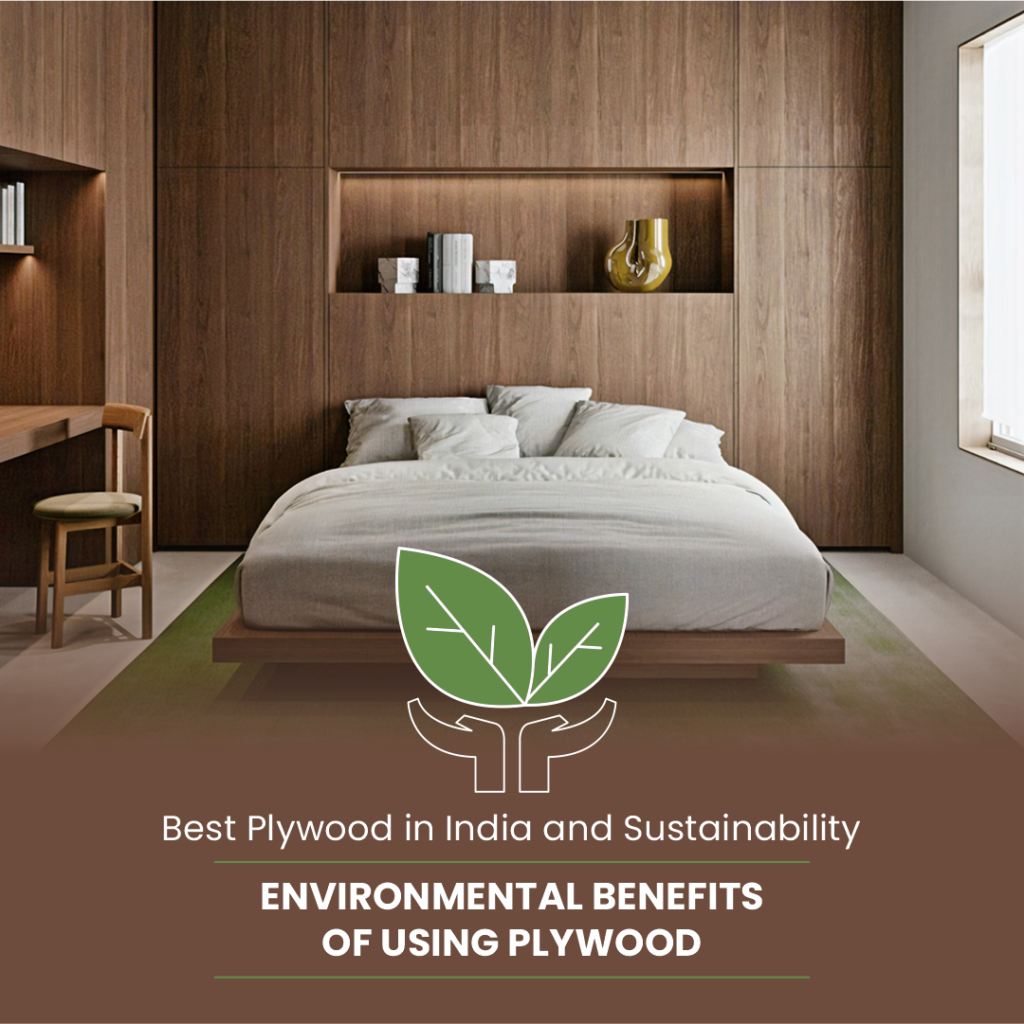In recent times, the world has been rapidly moving more and more towards sustainability – with an elevated level of environmental consciousness, customers as well as plywood manufacturers in India are now taking steps towards eco-friendly practices. The quest for sustainability has taken the forefront of almost all operations, be it sourcing material, waste management, or responsible packaging. Plywood, majorly utilised in crafting furniture and construction, offers a multitude of environmental benefits that makes it a popular choice for customers who are eco-conscious.
In this blog, we will dive into how plywood and sustainability are interrelated, and what the environmental benefits of using plywood are.
Right from making furniture to its implementation in construction projects, plywood has a number of applications thanks to its exceptional strength, versatility, stability, durability, and resistance to water, moisture, fire, and pests due to its process of manufacturing. It is a key material preferred by many for a variety of utilities, one of which is its environmental consciousness.
Renewable resource
It is needless to say plywood is essentially manufactured wood, which is a renewable resource – this stands out as one of the most irrefutable environmental benefits of using plywood in your furniture or construction project. The best plywood in India is manufactured using wood from fast-growing species of trees, ensuring a valid contribution to sustainable agroforestry practices. This ensures that no mature trees need to be harvested, and also endorses landscaping plantations that specifically aid in timber production for use in construction projects or crafting furniture.
Efficient resource management
Along with sourcing raw materials by following responsible agroforestry practices, plywood is also known to be one of the most efficiently managed products during production because it discards the least amount of waste. Plywood is a composite material made out of thin wood veneer layers, which optimise the usage of raw materials by making use of every part of the wooden log. Waste that is generated during the process of manufacturing in the form of wood scraps, offcuts, or sawdust can be salvaged and recycled, which ensures efficiency in resource management and minimised amount of waste, thus contributing significantly to the bigger picture of environmental consciousness.

Reduced carbon footprint and greenhouse gas emissions
Compared to other building materials such as steel or concrete, all types of plywood in India have significantly low embodied energy, which is the total energy that is consumed throughout the lifecycle of a material. Manufacturing plywood also requires comparatively less energy than alternate materials used in construction or carpentry. All this plays a key role in reducing greenhouse emissions, adding to the environmental benefits of using plywood. Furthermore, thanks to the lightweight nature of plywood, the cost of transportation and fuel is lowered – this is an important aspect because plywood is so widely used in construction, transportation can add to the overall carbon footprint. Other than this, because plywood is treated with the right chemicals, it is now available in E0 or E1 level of emissions, ensuring it does not affect people around as well as the environment.
Durability
Another important environmental benefit of using plywood stems from its durability and longevity. Because plywood has a layered structure that is joined by high-strength formaldehyde adhesives and treated with relevant chemicals, it becomes resistant to a number of things such as water, moisture, warping, decay, fire, termites, and more. This resistance significantly contributes to an extended lifespan of the structure made out of such plywood, as it not only reduces the need for replacements but also for new raw materials. This lowers the overall environmental impact that plywood manufacturers in India can have.
Carbon sequestration
It is a well-known fact that trees absorb and store carbon dioxide from the atmosphere – this process is called carbon sequestration. Manufacturing plywood whose raw materials are sourced from sustainable agroforestry practices ensures a constant cycle of carbon sequestration, further making sure that the carbon dioxide levels in the atmosphere lower over time and that the impact of climate change can be somewhat mitigated.
Concluding thoughts
To wrap it all up, in recent times plywood has set itself apart as one of the most sustainable materials for construction as well as carpentry – with a number of environmental benefits ranging from sustainably sourcing the wood from responsible agroforestry plantations, minimising waste, ensuring efficient resource management, ensuring continual carbon sequestration, and reducing overall carbon footprint and greenhouse gas emissions, plywood has emerged as one of the most popular choices for eco-conscious consumers.
Of all the plywood manufacturers in India, Wigwam Ply stands out as one of the best as through their process of eco-innovation, they consistently deliver the best quality plywood which is a sustainable solution catering to the rising need of the hour. Choose plywood for your next construction or furniture project and ensure safeguarding our planet for the coming generations.

